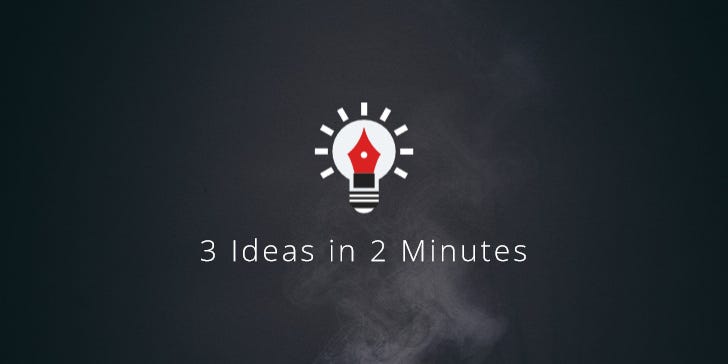#205: Plan Continuation Bias, PDCA Cycle & Planning to the End
3 Ideas in 2 Minutes on Making Plans
I. Plan Continuation Bias
Imagine you’re a private pilot taking your family on a weekend trip from San Francisco to San Diego. Your sister is getting married tonight. And since you like her it’s important that you arrive on time. Your flight’s going great — until it isn’t. The autopilot malfunctions. Then the weather changes dramatically two-thirds into the flight.
What are you going to do? Attempt the landing in San Diego even though you’re not trained for an instrument landing in bad weather? Or divert and miss your sister’s wedding? Imagine all the hassle of getting a hire care instead. And then having to come back to pick up your plane again.
Plan Continuation Bias happens when you continue with the original plan even though it becomes clear that it should be abandoned. In the aviation community, it’s commonly known as Get-there-itis. The closer you get to your desired destination the stronger the effect is. So how do you avoid making a fatal mistake while frantically trying to make a doomed plan work?
One way is to prepare in such a way that changes or delays won’t matter as much. Another approach is to identify key decision points to periodically reevaluate your plan. Before you take off. A Premortem Analysis is a great tool for both: Imagine yourself in the future. Your plan has fallen apart. What happened?
II. PDCA Cycle
In aviation and beyond, the Plan-Do-Check-Act (PDCA) Cycle is a method for safety management and continuous improvement. Its four steps are:
Plan: Identify a goal or problem, gather information and develop a strategy for achieving it.
Do: Implement the plan on a small scale. Focus on execution and note any problems or challenges.
Check: Evaluate the results, compare outcomes to expectations and identify improvements.
Act: Refine the plan based on insights, apply successful elements widely or make adjustments as needed.
This cycle can be applied to everything from personal goal-setting to workplace problem-solving and planning wedding trips.
III. Planning to the End
In complex, high-stakes scenarios, a poorly thought-out plan is more dangerous than having no plan at all. This is why you should always…
Plan All The Way To The End
The ending is everything. Plan all the way to it, taking into account all the possible consequences, obstacles, and twists of fortune that might reverse your hard work and give the glory to others. By planning to the end you will not be overwhelmed by circumstances and you will know when to stop. Gently guide fortune and help determine the future by thinking far ahead.
—Robert Greene, The 48 Laws of Power
🐘
Have a great week,
Chris
themindcollection.com

